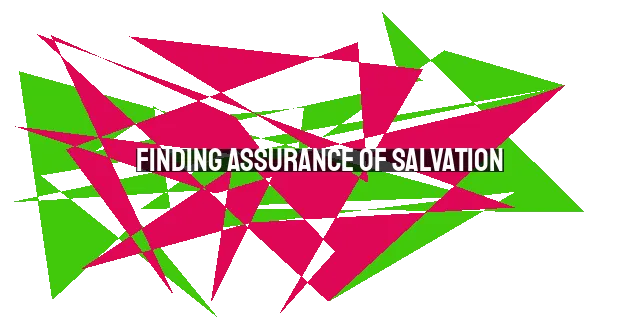True Social Justice: A Biblical Perspective for Christians
Only Christians Understand True Social Justice
If you live in a progressive city, you have likely heard the term “social justice” being thrown around. It has become a cultural currency, and your stance on various social issues dictates whether you are a hero, warrior, victim, or villain. The debate over issues like racial discrimination, abortion, welfare, healthcare, the environment, immigration, the definition of marriage, foreign policy, poverty rates, and economic issues have turned social media into a warzone.
As Christians, we are called to love our neighbors as ourselves and to seek justice. But in a world where everyone has their own definition of justice, what does true social justice look like?
Whose Justice Is Right?
Everyone has their own idea of what justice looks like. For some, it means fighting for the rights of the oppressed and marginalized. For others, it’s about protecting the sanctity of life and defending the unborn. Some see justice as a way to combat poverty and economic inequality, while others believe it’s about protecting the environment for future generations.
But whose definition of justice is right?
As Christians, we know that the only true and just standard is God’s word. The Bible tells us that God is a God of justice (Isaiah 30:18) and that he commands us to do justice and to love kindness (Micah 6:8). It is only through a biblical worldview that we can truly understand what social justice is and how to pursue it.
The Problem with Secular Social Justice
Secular social justice movements often focus on individual rights and equality. While these are important values, they are not enough to achieve true justice.
For example, the pro-choice movement argues that women have the right to choose what happens to their bodies. However, this argument ignores the fact that there are two bodies involved in an abortion, and that the unborn child has a right to life as well.
Similarly, the Black Lives Matter movement seeks to address the issue of police brutality against African Americans. While this is a valid concern, the movement’s focus on racial identity and group rights can lead to division and animosity between different groups of people.
Secular social justice movements often miss the mark because they are based on humanistic values and ideals rather than on the truth of God’s word. As a result, they can lead to a distorted view of justice that is subjective and inconsistent.
True Social Justice from a Biblical Perspective
So, what does true social justice look like from a biblical perspective?
1. Justice Begins with God
True justice begins with God. He is the one who defines what is right and wrong, and he is the one who executes justice (Deuteronomy 32:4). As Christians, we must start with a biblical understanding of justice and seek to apply it to all areas of life.
2. Justice is Rooted in Love
Justice is not just about punishing wrongdoers; it’s also about loving our neighbors as ourselves (Matthew 22:39). We must seek to show compassion and mercy to those who are hurting or in need, while also upholding righteousness and truth.
3. Justice is for Everyone
True justice is for everyone, regardless of race, gender, or social status. The Bible tells us that God shows no partiality (Romans 2:11) and that we should do the same. We must seek to defend the rights of the oppressed and marginalized, while also upholding the dignity of every human being.
4. Justice is Pro-Life
As Christians, we believe that every life is precious and valuable. True justice must include protecting the sanctity of life from conception to natural death (Psalm 139:13-16). This means speaking out against abortion, euthanasia, and other forms of injustice that devalue human life.
5. Justice is Restorative
True justice is not just about punishing wrongdoers; it’s also about restoring relationships and making things right. This is why Jesus commands us to forgive those who have wronged us (Matthew 6:14-15). We must seek to reconcile with those who have been hurt or offended, and work towards healing and restoration.
The Role of the Church in Pursuing Social Justice
As Christians, we are called to be salt and light in the world (Matthew 5:13-16). This means that we have a responsibility to pursue social justice in our communities and in the world at large.
But how do we do this? Here are some practical ways that the church can pursue social justice:
1. Pray
Prayer is essential in the pursuit of social justice. We must pray for God’s wisdom and guidance as we seek to address the issues facing our communities and the world.
2. Educate Ourselves
We must educate ourselves about the issues facing our communities and the world. This means reading books, articles, and news sources that provide a balanced and biblical perspective on social justice.
3. Speak Out
We must speak out against injustice and advocate for those who are oppressed or marginalized. This means writing letters to our elected officials, participating in peaceful protests, and using social media to raise awareness about important issues.
4. Serve Others
We must serve others in practical ways. This means volunteering at a local food bank, serving at a homeless shelter, or mentoring at-risk youth. By serving others, we demonstrate the love of Christ and bring about positive change in our communities.
5. Love Our Neighbors
Finally, we must love our neighbors as ourselves. This means showing compassion and kindness to those who are hurting or in need, regardless of their race, gender, or social status. By loving our neighbors, we demonstrate the heart of Christ and bring about true social justice.
The Ultimate Social Justice
Ultimately, true social justice can only be achieved through the gospel of Jesus Christ. The gospel tells us that we are all sinners in need of salvation (Romans 3:23-24) and that Jesus died on the cross to pay the penalty for our sins (Romans 5:8). Through faith in Jesus, we can be reconciled to God and to one another, and we can experience true justice and peace.
As Christians, we must never lose sight of the ultimate social justice that is found in the gospel. It is only through the power of the Holy Spirit and the transforming work of Christ that we can truly love our neighbors as ourselves and bring about positive change in the world.
Conclusion
True social justice is not about individual rights or group identity; it’s about upholding the truth and righteousness of God and seeking to love our neighbors as ourselves. As Christians, we have a responsibility to pursue social justice in our communities and in the world at large. We must do so with wisdom, compassion, and a commitment to the truth of God’s word.
Let us pray that God would give us the wisdom and courage to pursue true social justice, and that he would use us to bring about positive change in the world for his glory.



POST COMMENT
For post a new comment. You need to login first. Login
COMMENTS(0)
No Comment yet. Be the first :)